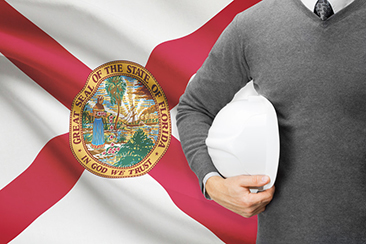Workers’ compensation cases are difficult to prepare and win especially with the challenging medical record retrieval and medical records review processes involved. The entire process involves a number of man hours on the part of the attorney and his staff, and it is only reasonable that the attorney receives reasonable compensation. It is in this context that SB 50A and the recent Florida Supreme Court ruling, Marvin Castellanos v. Next Door Company becomes significant. In April 2016, the Florida Supreme Court struck down a law limiting attorney’s fees in workers’ compensation cases. This ruling is considered a major victory for injured workers and the attorneys representing them, and is expected to have a negative impact on businesses and employers.
Senate Bill 50 A became effective October 1, 2003 and it heralded a turning point as regards workers’ compensation costs. It was a comprehensive bill and when signed into law, affected almost every key aspect of the workers’ compensation system in Florida including the following:
- Medicare-based fee schedules
- Limitation of PTD (Permanent Total Disability) benefits and change in eligibility criteria
- Caps on claimant attorney fees
- Restrictions on IMEs (Independent Medical Examinations)
- ADRO (Additional Alternative Dispute Resolution) processes
Following the implementation of SB 50A, Florida witnessed a significant reduction in PTD claims as well as a considerable reduction in the average duration of TTD (Temporary Total Disability) benefits. These developments are generally attributed to the restrictions SB 50 A placed on attorney fees. Advocates of the fee schedule say that relatively generous attorney reimbursements motivated attorneys to engage more in many situations where the extent of attorney involvement and the related costs were just not reasonable by the particular circumstances of the claim in question. SB 50A made the Florida attorney fee schedule mandatory. It held that “The fee for benefits secured is limited to 20 percent of the first $5,000 of benefits secured, and 15 percent of the next $5,000 of benefits secured, 10 percent of the remaining amount of benefits secured to be provided during the first 10 years after the claim is filed, and 5 percent of the benefits secured after 10 years.”
Though the attorney fee provisions in SB 50A was invalidated by the Florida Supreme Court in October 2008 in a ruling in Emma Murray v. Mariner Health and Ace USA, it was reinstated shortly thereafter in 2009 by Florida legislature via HB 903.
The April 28, 2016 Florida Supreme Court ruling mentioned at the beginning found that the attorney fee law violated due process rights. According to the Supreme Court, the mandatory fee schedule in Section 440.34 of the Florida workers’ compensation statute is “unconstitutional as a violation of due process under both the Florida and United States Constitutions.” The Supreme Court therefore eliminated the caps on claimant attorney fees. Here are the key points of the particular case that led to this significant ruling. The original issue pertains to an award of $164 in claimant attorney fees for 107 hours of legal work.
- A Miami man Marvin Castellanos suffered head, neck and shoulder injuries while working for Next Door Co., a maker of doors and door frames in Miami.
- Castellanos won and received benefits of $822.70.
- His lawyer who worked on the case for 107 hours had sought a fee of $36,817.50. He received a fee of $164.54, which is the equivalent of $1.53 per hour under the mandatory fee schedule mentioned above.
The Supreme Court ruling is based on the issue of due process rights under the Florida State Constitution and the United States Constitution. The Court ruled that due process was violated since the law prevented challenges to the reasonableness of workers’ compensation attorney fees. According to the Court, without the likelihood of an adequate attorney fee award, there is little incentive for attorneys to assist claimants, which in turn may increase the likelihood of insurance carriers denying benefits or acting in other ways that may prove unfair to the claimant. The Court pointed out that though the Legislature intended to deliver benefits more quickly and efficiently to claimants, the increasing complexity of the system became detrimental to the claimant who depended on a competent attorney to find his/her way through the intricacies.
What effect will this ruling have on workers’ compensation rates in Florida and what steps would employers take?
- The Florida Office of Insurance Regulation (OIR) has given contingent approval for a 14.5% hike in workers’ compensation rate in the state. This will take effect from the 1st of December 2016 and will be applicable to new and renewal business.
- There could be a more substantial increase in the near future.
- Experience modifiers (E-Mods) may also increase with insurance companies beginning to reserve claims for higher amounts, and being less aggressive on claim closure.
Employers are likely to experience increased costs. In the current unpredictable scenario, claim advocacy is very important to control cost. Experts and observers recommend that employers should ideally have an internal claims manager to keep an eye on the process. Alternatively they could outsource to a reliable and experienced claims advocate who can provide the required guidance and suggest practical solutions to reduce the frequency and severity of claims.




